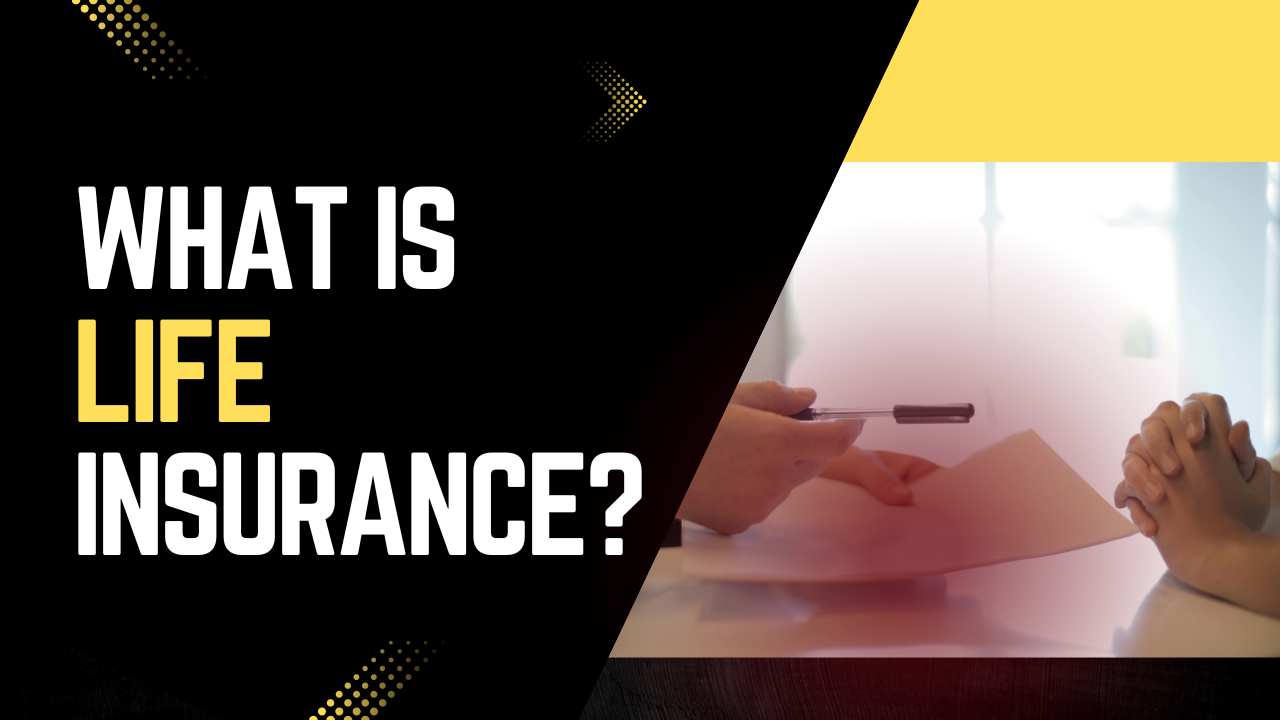Life insurance is a financial deal between you and an insurance business. You pay a regular fee, and in return, the company offers to pay a sum of money to your loved ones if you die. It’s like a safety net for your family.
Imagine this: Mr. Sharma, a family man, got a life insurance policy. Sadly, he passed away suddenly. Thanks to his policy, his family got a lump sum amount that helped them cover costs, pay off debts, and protect their future.
Life insurance isn’t just about safety; it’s about peace of mind.
Life insurance is a must-have for your financial plan. Imagine this: Mr. Patel, a sole earner, had a life insurance policy. Sadly, he passed away suddenly. His family used the insurance money to pay off their home loan, cover their daughter’s schooling, and keep their lifestyle.
Life insurance isn’t just about safety; it’s a cash tool. It helps recover lost income, pays bills, and funds future goals. Don’t leave your family’s financial future to chance. Get life insurance today.
How Life Insurance Works

A life insurance contract is simply a formal deal between you and the insurance company. You agree to pay a regular fee, and the company offers to pay a specific amount to your beneficiaries if you pass away. It’s like a polite handshake, but with numbers.
Think of it like this: Mr. Gupta bought a life insurance policy. In the deal, it clearly says how much he’ll pay regularly, and how much his family will get if something happens to him. It’s all about trust and dedication.
Life insurance is like a promise. You pay a fee, and the insurance company guarantees a specific amount of money – called a death benefit – to the people you love when you’re gone. It’s like a cash safety net for your family.
Imagine this: Mr. Singh had a life insurance policy. Sadly, he passed away. Thanks to his policy, his wife got a lump sum amount that helped her pay off their home and protect their children’s future. That’s the power of life insurance.
The money you pay as a fee is like building a safety net for your loved ones. A part of it goes towards paying the insurance company’s costs, while the rest is spent to grow. Think of it like saving for a bad day, but for your family.
For example, Mr. Desai paid regular payments for years. When he passed away, his family got a much bigger amount than the overall premiums paid. This is how life insurance works: small, regular amounts can make a big effect.
Types of Life Insurance

Term life insurance is like renting a safety net. You get coverage for a set time, like 10, 20, or 30 years. If something happens to you during that time, your family gets the payout. It’s great for people with big responsibilities like a mortgage or young kids.
Let’s say you’re a new parent with a mortgage. A term life insurance policy can give you peace of mind knowing your family is covered if something unexpected happens. It’s a smart financial move for your family’s future.
Permanent life insurance is like a lifelong guardian. Unlike term insurance, it sticks with you for life. You keep paying payments, and the coverage stays in place until you pass away, stop paying, or surrender the insurance. It’s more than just safety; it’s a cash tool that can grow over time.
Imagine having a policy that not only covers your family but also builds cash value you can access later. That’s the beauty of permanent life insurance. It’s a long-term financial plan for those looking for both safety and growth.
Beyond standard life insurance, there are choices like universal and adjusted universal life insurance. Universal life insurance gives you more power. You can change your payment and death benefit, and often, it builds cash value over time.
Indexed universal life insurance is like universal life on steroids. It links your policy’s growth to a stock market measure, like the S&P 500. This means your cash value can possibly grow faster, but it’s also open to market ups and downs. So, while it offers the chance for better profits, it also comes with more risk.
Choosing the Right Policy

Picking the best life insurance policy is like finding the right puzzle piece. You need to consider a few things. First, check out the insurance company’s financial health. It’s like making sure your team is strong. Second, look at what other customers say about the company. Good reviews are like suggestions from friends. Lastly, make sure they offer an insurance that fits your wants. Some policies are like short-term goals, while others are long-term investments.
Don’t settle for the first life insurance price you see. Comparing quotes from different insurance is like window shopping for your financial future. You could save a lot! Just like you compare prices for a new phone or TV, it’s smart to compare life insurance plans. Different companies offer different rates and security choices. A little extra work now can mean big savings down the line.
Conclusion
Life insurance is a cash safety net. You pay a fee, and the insurance offers a death reward to your heirs. There are two main types: term and permanent. Term insurance is brief, while permanent lasts a lifetime and often builds cash value.
When picking a policy, compare quotes, consider the insurer’s financial strength, and pick a plan that fits your wants. Remember, life insurance isn’t just about safety; it’s a smart financial move for your family’s future.
Life insurance isn’t one-size-fits-all. What’s right for your friend might not be great for you. Take some time to figure out your wants. Are you a young parent looking for short-term coverage? Or are you building a long-term cash plan? There’s a life insurance policy out there for everyone. Don’t just guess – study your choices. Your family’s future depends on it.
FAQ
1. How Much Life Insurance Do I Need?
The amount of life insurance you need relies on your financial responsibilities, kids, and desired living for your family after your death. There are online tools to help you assess your needs.
2. Is Life Insurance Tax-Deductible?
The payments you pay for life insurance are usually not tax-deductible. However, the death benefit received by your heirs is usually tax-free.
3. Can I Cancel My Life Insurance Policy?
Yes, you can usually cancel your life insurance policy. However, there may be penalties or surrender charges depending on the policy type and how long you’ve owned it.
4. How do I choose a life insurance policy?
Consider things like your income, healthcare needs, age, health, and financial goals.


